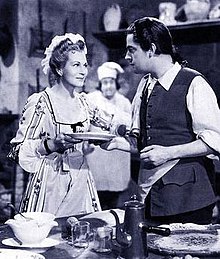
Luisa Ferida, real surname Manfrini, was an Italian stage and film actress. She was considered a diva in Italian cinema during 1935 to 1945 and was the highest paid movie star of that period. The actress was famous as a films diva and she is remembered for her tragic death; in fact during the period of anti-fascist vendettas, immediately after Italian Civil War, she was assassinated, as was later proved by the Milan Court of Appeal, by shooting following a summary trial carried out by some partisans: she was shot with her lover, the actor and member of Decima Flottiglia MAS Osvaldo Valenti, as accused of alleged and hypothetical participation in war crimes and torture in connection with so-called Koch gang, facts of which she was then deemed innocent after the war. Therefore a war pension was allocated to the mother, who had no other source of income.

The Emperor of Capri is a 1949 Italian comedy film directed by Luigi Comencini and starring Totò, Yvonne Sanson and Marisa Merlini.

The Iron Crown is a 1941 Italian adventure film written and directed by Alessandro Blasetti, starring Massimo Girotti and Gino Cervi. The narrative revolves a sacred iron crown and a king who is prophesied to lose his kingdom to his nephew. It blends motifs from several European myths, legends and modern works of popular fiction. The film won a Coppa Mussolini award, which is the ancestor to the Golden Lion.
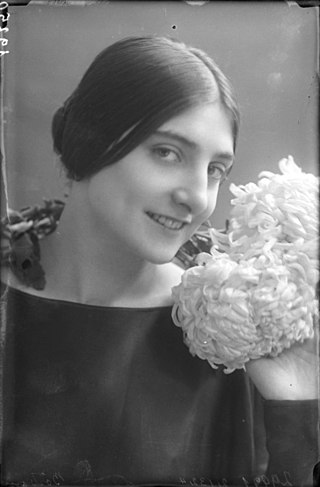
Paola Borboni was an Italian stage and film actress whose career spanned nearly eight decades of cinema.
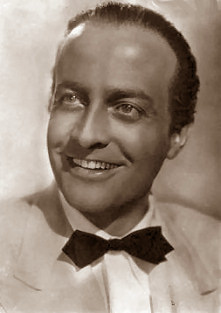
Osvaldo Valenti was an Italian film actor. Valenti starred in several successful Italian movies of the late 1930s and early 1940s, such as the famous The Iron Crown and The Jester's Supper. He appeared in more than 50 films between 1928 and 1945. He and his lover, Luisa Ferida, were executed by partisans in Milan, Italy, due to their links with Fascism. Their story was portrayed in the 2008 film Wild Blood.

Love Story is a 1942 Italian drama film directed by Mario Camerini and starring Assia Noris, Piero Lulli and Carlo Campanini. It is based on the play Life Begins by Mary McDougal Axelson, previously adapted into a 1932 film of the same title and a 1939 film A Child Is Born. Along with A Pistol Shot it marked an attempt to showcase Noris as a dramatic actress, rather than the White Telephone comedies she had become known for. It was screened at the 1942 Venice Film Festival.
The Mistress of the Inn, also translated as The Innkeeper Woman or Mirandolina, is a 1753 three-act comedy by the Italian playwright Carlo Goldoni about a coquette. The play has been regarded as his masterpiece. Frederick Davies describes it as Goldoni's Much Ado About Nothing.

An Adventure of Salvator Rosa is a 1939 Italian historical adventure film directed by Alessandro Blasetti and starring Gino Cervi, Luisa Ferida and Rina Morelli. It is set in seventeenth century Naples, then occupied by Spain, where a famous artist celebrated for his paintings of the rich leads a double life as a secret defender of the poor and oppressed.
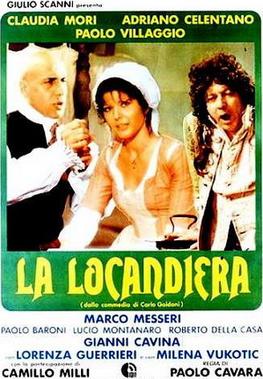
La locandiera is a 1980 Italian comedy film directed by Paolo Cavara, based on the Carlo Goldoni's three-act comedy The Mistress of the Inn.
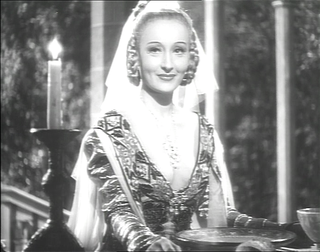
The Jester's Supper is a 1942 Italian historical film directed by Alessandro Blasetti and starring Amedeo Nazzari, Osvaldo Valenti and Clara Calamai. It was based on a play of the same title by Sem Benelli, which had later been turned into an opera by Umberto Giordano. Like the play, the film is set in the 15th century Florence of Lorenzo the Magnificent and portrays a rivalry that leads to a series of increasingly violent practical jokes.
The Charmer is a 1931 Italian comedy film directed by Guido Brignone and starring Armando Falconi, Tina Lattanzi and Ada Dondini. It is part of the White Telephone genre of films. It was shot at the Cines Studios in Rome.

The Widow is a 1939 Italian drama film directed by Goffredo Alessandrini and starring Isa Pola, Leonardo Cortese and Osvaldo Valenti. A mother's possessive love for her dead son leads to a hostile attitude towards his widow.
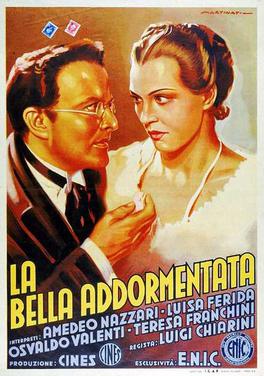
Sleeping Beauty is a 1942 Italian drama film directed by Luigi Chiarini and starring Luisa Ferida, Amedeo Nazzari and Osvaldo Valenti. The film was screened at the 1942 Venice Film Festival. It is based on a 1919 play by Pier Maria Rosso di San Secondo. It belongs to the movies of the calligrafismo style.
The Joker King is a 1935 Italian historical comedy film directed by Enrico Guazzoni and starring Luisa Ferida, Armando Falconi and Luigi Cimara.
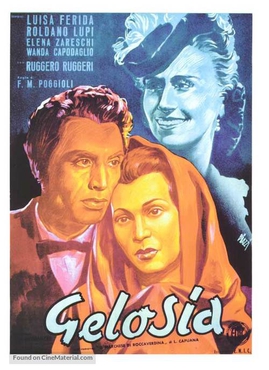
Jealousy is a 1942 Italian drama film directed by Ferdinando Maria Poggioli and starring Luisa Ferida, Roldano Lupi and Ruggero Ruggeri. The film was shot at the Cinecittà Studios in Rome with sets designed by the art director Gastone Simonetti. It belongs to the movies of the calligrafismo style. It is based on the 1901 novel Il Marchese di Roccaverdina by Luigi Capuana, which was later made into a 1953 film Jealousy.
Knights of the Desert is a 1942 Italian adventure film directed by Gino Talamo and Osvaldo Valenti. It starred Valenti, Luisa Ferida and Luigi Pavese. The film was based on a novel by Emilio Salgari with a screenplay by Federico Fellini and Vittorio Mussolini, the son of Italy's dictator Benito Mussolini. It was produced by the Rome-based ACI which was run by Vittorio Mussolini. Valenti and Ferida were romantically linked, and co-starred in several films together.
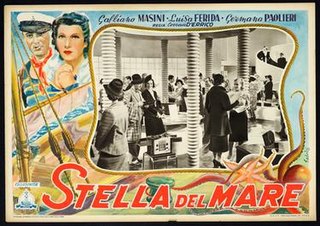
Star of the Sea is a 1938 Italian "white-telephones" comedy film directed by Corrado D'Errico and starring Galliano Masini, Luisa Ferida and Germana Paolieri.
The Last Adventure is a 1932 Italian comedy film directed by Mario Camerini, starring Armando Falconi and Diomira Jacobini.

Calligrafismo is an Italian style of filmmaking relating to some films made in Italy in the first half of the 1940s and endowed with an expressive complexity that isolates them from the general context. Calligrafismo is in a sharp contrast to Telefoni Bianchi-American style comedies and is rather artistic, highly formalistic, expressive in complexity, and deals mainly with contemporary literary material, above all the pieces of Italian realism from authors such as Corrado Alvaro, Ennio Flaiano, Emilio Cecchi, Francesco Pasinetti, Vitaliano Brancati, Mario Bonfantini, and Umberto Barbaro.
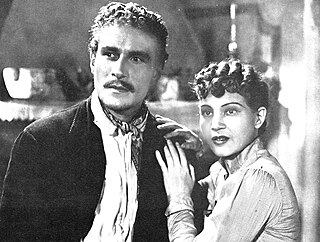
Tomb of the Angels is a 1937 Italian drama film directed by Carlo Ludovico Bragaglia and starring Amedeo Nazzari, Luisa Ferida, and Antonio Gradoli. Roberto Rossellini co-wrote the screenplay and served as assistant director. It was shot on location in the Apuan Alps in Liguria, and is set amidst the marble quarries of the area. It marked an early attempt at realism in Italian cinema, anticipating neorealism of the postwar era. It is similar in style to Walter Ruttmann's Steel of 1933, in it celebrated Italy's industrial strength in line with the propaganda of the Mussolini regime.
